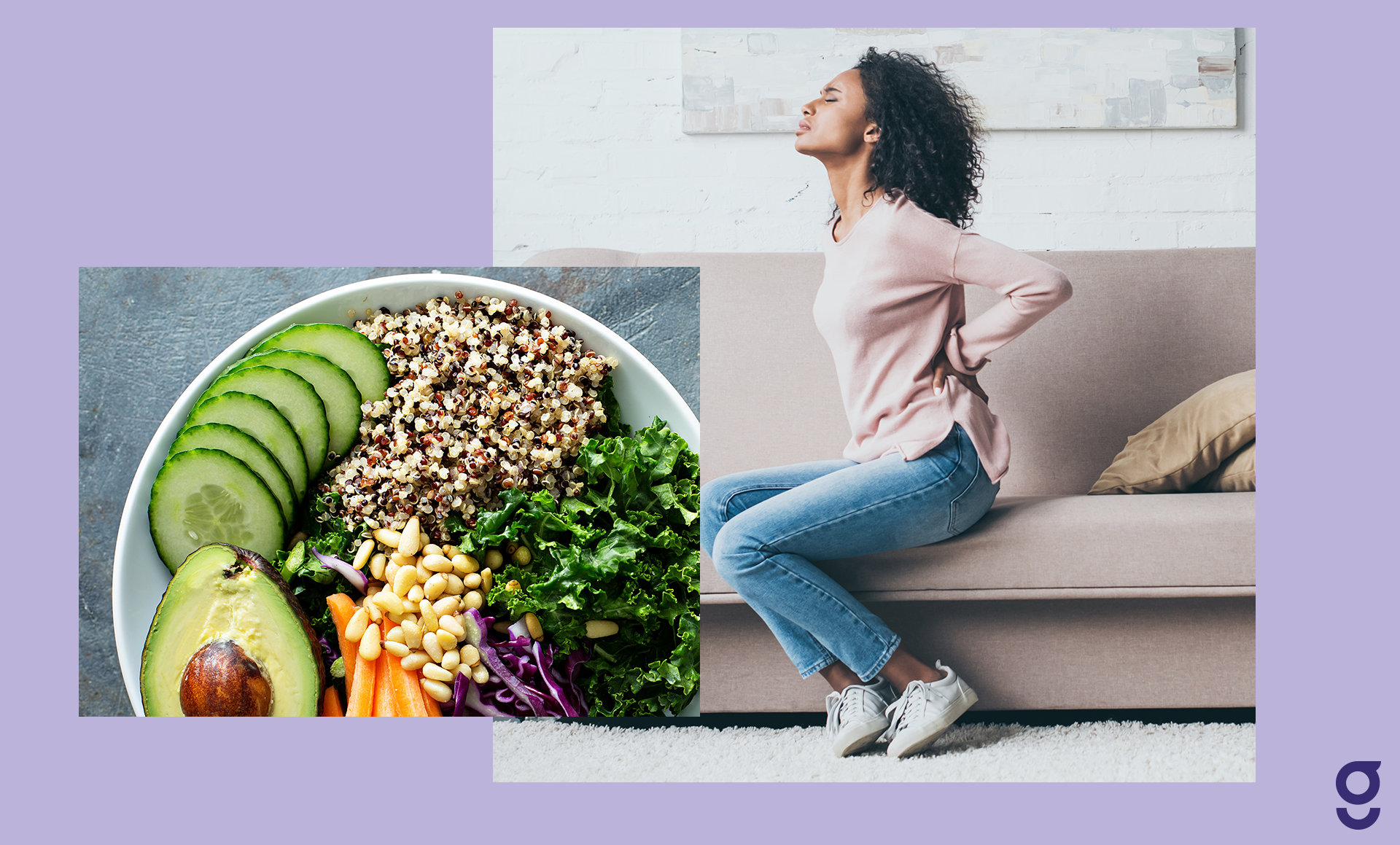Is an Anti-Inflammatory Diet Good for Back Pain?

You will learn the answers to these questions:
Which family of vegetables are commonly thought to cause inflammation (but there's no evidence)?
What is one vitamin and one mineral that support spine health?
Can my diet play a role in the regulation of inflammation?
Yes.
Can my diet be causing back pain?
Maybe.
Is changing my diet a quick fix to addressing back pain?
No.
Causes of Back Pain
Most people have experienced back pain at least once in their lifetime. The causes of back pain vary from self-inflicted due to bad habits to accidents, muscle or ligament strains, injuries, ruptured disks, and arthritis...just to name a few. There are also factors that increase the risk of developing back pain like: excess weight, lack of exercise, and certain diseases.
Pro-Inflammatory Diet
(name=pro) A pro-inflammatory diet is a diet that lacks fruits and vegetables, contains high amounts of meat, refined grain products, and dessert foods. There has been some evidence that indicates an association between a pro-inflammatory diet and bodily inflammation, in addition to being one of the contributing factors of overweight or obesity.
Moreover, it has been reported that there is an increased association between prevalence of lower back pain and obesity. So, consider paying more attention to food to help relieve some of that back pain.
Often, back pain is the direct result of chronic inflammation. Several studies have examined different foods and how they play a role in reducing inflammation.
There are certain characteristics that comprise an anti inflammatory diet: low in refined carbohydrates (white bread, pizza dough, pasta, pastries, white flour, white rice, desserts), adequate amounts of protein and fats (like omega-3 fatty acids), and foods rich in phytonutrients (a.k.a. antioxidants), micronutrients, and fiber.
Here is a list of foods that may cause inflammation and you should avoid in your diet:
Unhealthful oils like corn, soya, sunflower, safflower and canola.
Processed carbohydrates like: breakfast cereals, white bread, white pasta, snack foods like chips and crackers, baked goods, pastries, ice cream
Sugar sweetened beverages
Fried foods
Anti-Inflammatory Diet
(name=anti) The strongest scientific evidence suggests that foods high in antioxidants can have an anti-inflammatory effect that helps soothe and reduce the risk of back pain flare ups. If we imagine a diet that compromises all these qualities, they are most likely to be found in a Mediterranean diet.
Below are a list of anti-inflammatory foods for back pain to include in your diet:
Seafood : tuna, salmon, mackerel, sardines, anchovies, shellfish
Fruits (focusing on blueberries, strawberries and raspberries)
Dark leafy vegetables
Legumes/pulses
Nuts and seeds
Olives and olive oil
Herbs & Spices (ginger, turmeric, garlic, oregano, cinnamon, rosemary, cloves)
When dining out, it can be harder to stick to any diet, including an anti-inflammatory one. Consider also following a guide for an anti-inflammatory diet while dining out.
What About Nightshade Vegetables?
(name=nightshade) Nightshade vegetables include tomatoes, eggplants, bell peppers, potatoes, paprika, cayenne pepper. There has been some hype regarding whether these foods seem to trigger flares with individuals with inflammatory diseases.
There is no scientific evidence to confirm the link between nightshades and inflammation. Some individuals may be sensitive to nightshades, but nightshades themselves are not inherently inflammatory. If you believe these foods may be contributing to your inflammation, avoid them for 2 weeks and see if your symptoms subside.
Calcium and Vitamin D
(name=vitamin) Vitamin D plays an important role in bone health, with one key function of improving the body’s absorption of calcium. As they both contribute to bone mass in the vertebrae in the spine, make sure to check with your doctor if you need any supplementation.
The ideal way is to get more calcium and vitamin D is from your diet. Sources of calcium (aside from dairy) include: spinach, kale, collards and sardines. Foods that provide Vitamin D include: tuna, salmon, cheese, mushroom and egg yolks.
Related Article: Diet After Cancer
The Bottom Line
There is no single food that will reduce inflammation. The key is to include a variety of fresh nutritious foods and to be aware of the ingredient list if buying a packaged product. Some items may be considered “whole” and “healthy,” but may also contain added sugars/fats which may reduce the anti-inflammatory effect of the food. Diet, exercise, posture, healthy weight and good sleeping position all play their part in relieving back pain.
Nutrition is 1 of the 4 pillars of Goodpath integrative medicine. Get access to a back pain program built on Goodpath's integrative medicine and machine learning science, personalized just for you:
Embedded entry of type link not handled.
Learn more about other ways to manage back pain with yoga at home or some supplements that may help.